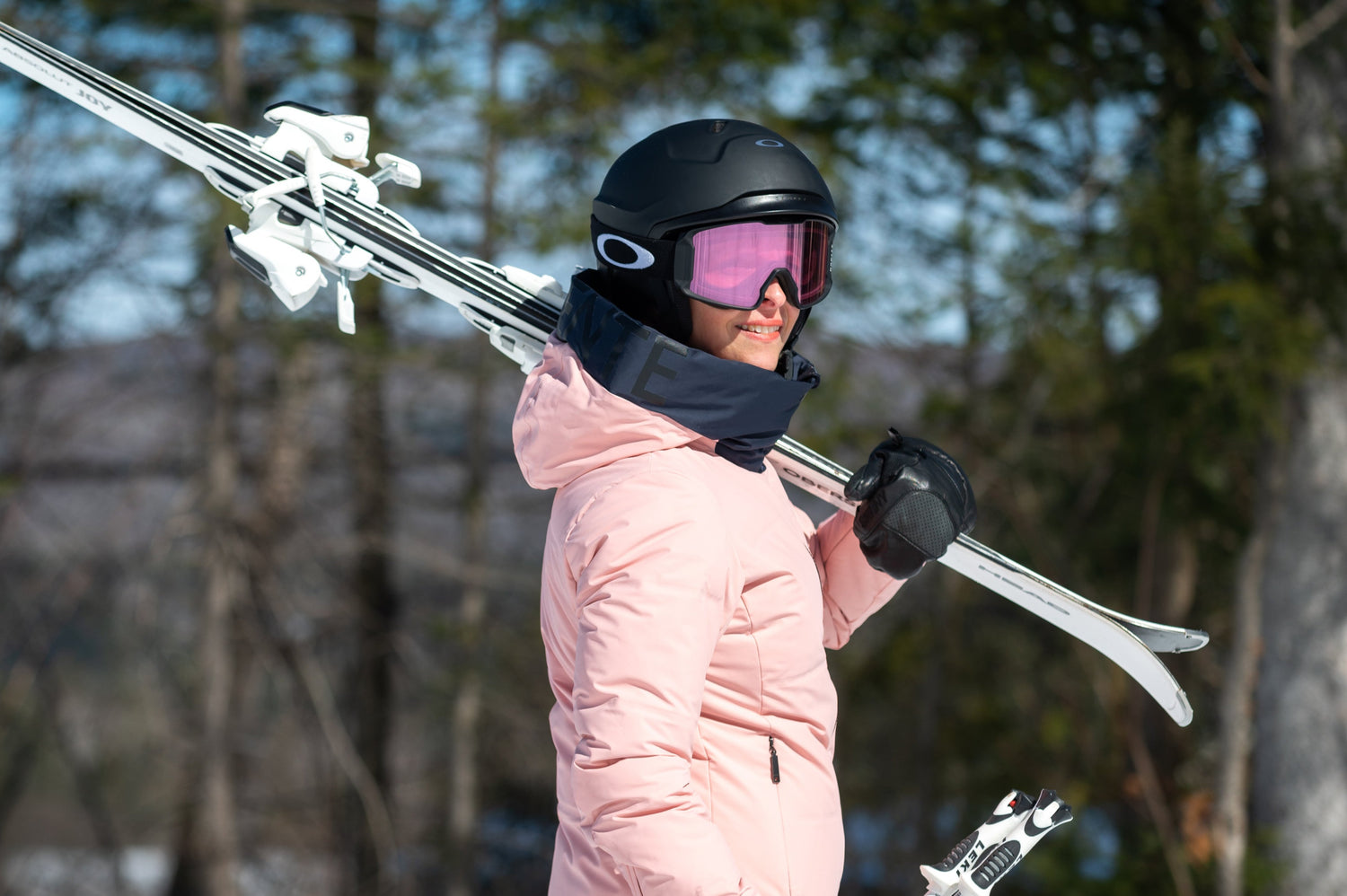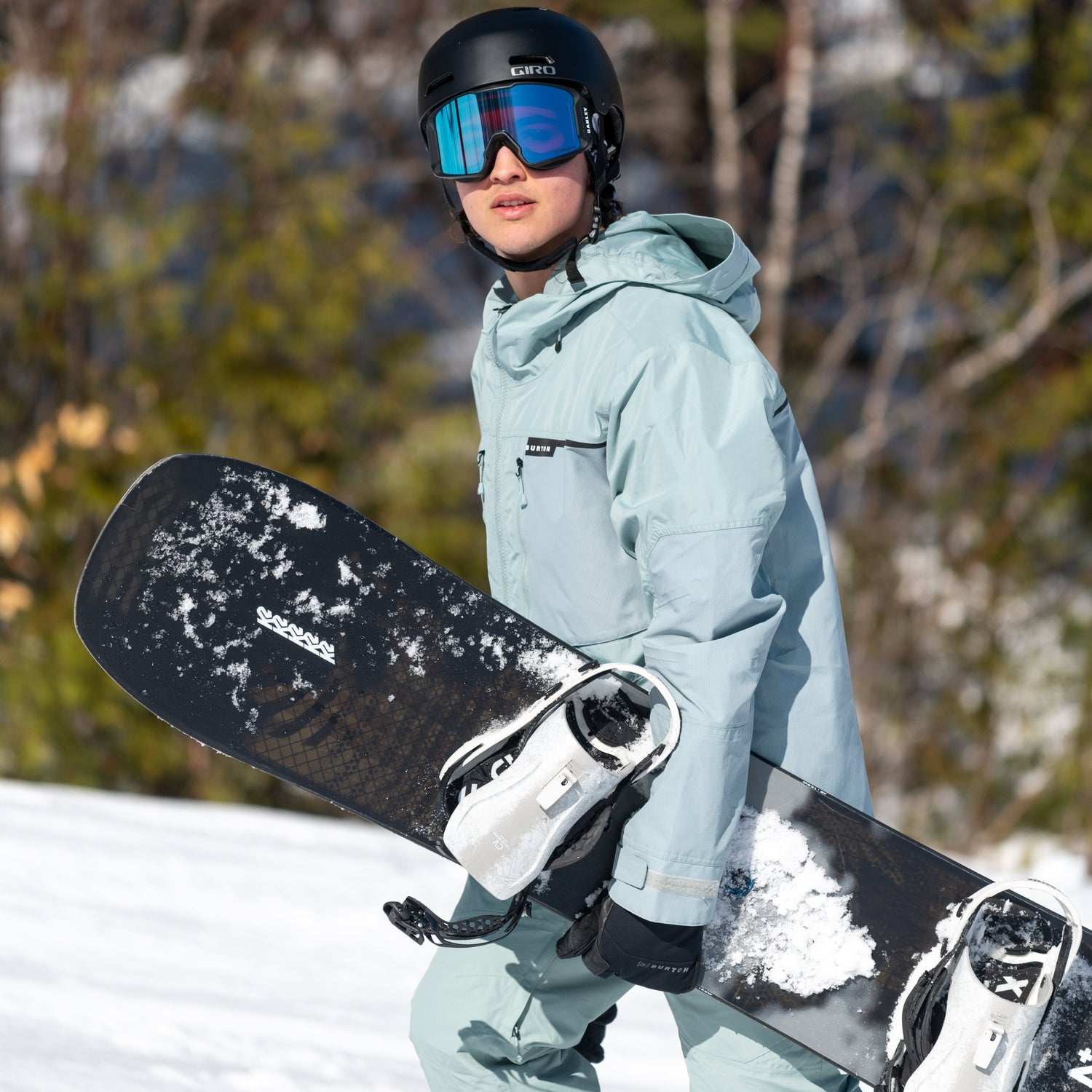“Being mobile doesn’t mean flexible. Mobility is knowing your range of motion (in the articulations). Mobility is also having muscular control around the articulations.” Guillaume Smith has been a fitness coach since 2010. He has co-founded Smith Coaching in 2016 to help athletes reach their goals in their respective disciplines. He believes that mobility has a positive impact on performance. Skiers are no exception!
The slightly forward inclined position needed while skiing reduces the range of motion. It is also very static which can create tension at the hips. This leads to muscular tightness which happens very insidiously and reduces joint mobility which is closely linked to loss of performance. Smith says: “When I say performance, I’m not only referring to competition. Performance is as much recreational as it is competitive.” So, it’s time to work those muscles!
Training helps increase mobility and control. According to Guillaume: “activation, reinforcement and mobility help prevent injury.” They are also very healing and help improve posture.
In order to regain mobility, Smith Coaching suggests a few easy exercises that you can do in the comfort of your living room. They are separated in four categories : upper body, lower body, abdominal belt and stretching. Choose your favorite playlist, dust off your motivation and get working!

Upper Body
1. Dumbbell Sweep Row
Often forgotten when training for alpine sports, the upper body has needs to work with the lower body. This pulling exercise works the back. It is excellent for the back and shoulder posture.
10 to 15 reps / 3 to 4 series
2. Bend Facepull
This second pulling exercise works the traps, from the neck to the middle of the back. It opens up the chest and helps improve control at the shoulders. This exercise strengthens the back, improves posture and encourages a better position, less forward bending, while skiing.
15 to 20 reps / 2 to 3 series
3. Black Burns
This exercise works scapular control. 90% of shoulder pain are caused by lack of scapular mobility and stability. This exercise allows for a rotation in all angles. It can be done as a warm-up exercise or as part of the training. The Black Burn must be done at maximum effort, in other words until it burns!
Lower Body
1. Petterson Step Up
This knee extension exercise – often used by physiotherapists – demands control and concentration in order complete all the movements involved. No need to be very elevated or to use heavy weights. In fact, it’s better to start with no weights at all. This exercise is perfect for backcountry enthusiasts.
10 to 15 reps / 2 to 3 series
2. Drop Lunge
This strengthening exercise works on impacts and control capacity coming out of turns or when an unexpected situation arises. It improves movement mechanics and knee and ankle stability.
8 to 12 reps / 3 to 4 series
3. Swissball Leg Curl
A knee flexing exercise, the Swissball Leg Curl strengthens hamstrings. Can be done as a warm-up exercise before a day of skiing or as part of your workout routine. It also allows to work the posterior chain as much as the anterior chain for more stability and endurance.
6 to 10 reps / 2 to 3 series
Abdominal Belt
1. Swissball hip extension
When we mention abdominal belt, many people only think of abdominal muscles. The abdominal belt also involves back muscles, otherwise known as the erector spinae.
This exercise targets lower back strength to achieve a straighter posture.
12 to 15 reps / 3 series
2. Swissball Side Crunch
Working the obliques is essential in almost all sports. Do this exercise slowly to focus on strengthening more than the number of repetitions.
15 to 20 reps
3. Dumbbell Over Head Sit Up
This exercise works the hip flexors and the rectus abdominis. The use of a ball, a bottle or any other object in your hands limits the possibility to use them to help bringing the body back up. The abs do all the work here!
2 to 4 series, 45 to 60 seconds
Stretching Exercices
Everyday, before or after an activity, stretching is always beneficial!
1. Pretzel Stretch
2. Wide Leg Low Back Stretch
3. Couch Stretch
These exercises can be done everyday or a few times a week. Guillaume suggests two ways to introduce them to your daily routine. First, choose an exercise from each section, except the stretching exercises, and do them everyday in alternance. Second, if you want to do them all, train twice a week.
Remember that you will eventually reach a plateau for each exercise. If you want to keep training or want to work more specific areas, visit Smith Coaching website. Enjoy your training session!
You’ll find the Smith Coaching series once a month on our blog!



